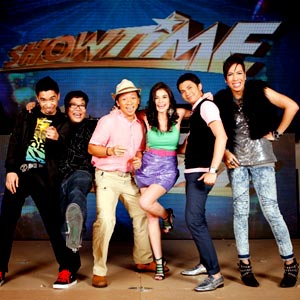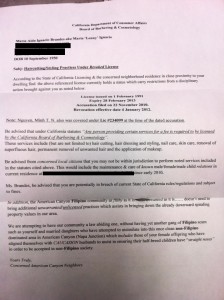I had been following the progress (and stagnation) of the Reproductive Health Bill since 2011, when I wrote part of my college senior thesis about the proposed law. My paper covered the main points of the bill - that it would provide access in the Philippines to maternal care, sex education and contraception, but it would not legalize abortion. I also discussed the controversy surrounding the issue. The majority of the population, along with President Aquino who endorsed the bill were long at odds with the Catholic Church, itself a potent political force within the country. That May, having completed my thesis and received my diploma, I went to the Philippines with my family. The three-week trip was a graduation gift from my parents, and I couldn't wait to explore the country again, this time with a good friend who joined us for the first ten days. While visiting Bohol and Quezon City, we noticed a certain trend: there are so many kids here, we thought. It wasn't an observation I can remember having on any other family vacation. There were small children literally everywhere. They approached us with wonder on the beach, they hung onto their parents at the malls - and they languished on the streets, begging for money. Our thoughts turned often to the RH bill.
I read an article from the Los Angeles Times this past summer that delved into the RH Bill and its implications, while also painting a portrait of a woman named Yolanda Naz. At the age of 36, “she had more children than teeth, common for poor women after repeated pregnancies and breast-feeding.” This mother of eight recounted sermons she had heard at Mass, when priests emphasized the sinfulness of taking birth control pills. But she explains, "What is more sinful is to have more children than I can afford to feed." The RH Bill is for women like Yolanda, who struggle every single day to feed their many sick children.
On December 19, 2012, the Responsible Parenthood and Reproductive Health Act of 2012 enacted by the 15th Congress of the Philippines. The law guarantees Pilipino citizens access to various contraceptives and fertility control. The public will have access to sex education and methods of family planning. Women are guaranteed maternal care and will have more control over their own bodies. This is a major milestone in the Philippines, where the median age is 23.1 years and the birth rate is 24.98 births/1,000 population (compared to 37.1 years and 13.7/1,000 in the United States).
Human life is precious, and that is exactly why I am glad the bill was passed into law. We should value the lives of children by allowing them to have as much opportunity as possible. Too often they are forced to work instead of going to school; tey become ill or they face death because their parents can't afford the luxuries of education, clean shelter and food. Because of this new law, children in the Philippines - this is the hope, and it will take time - will have a better shot at living healthier and happier lives.



